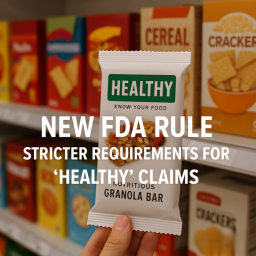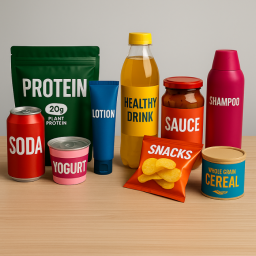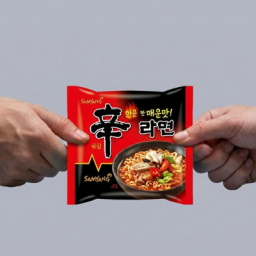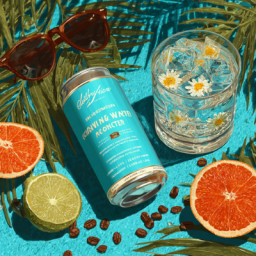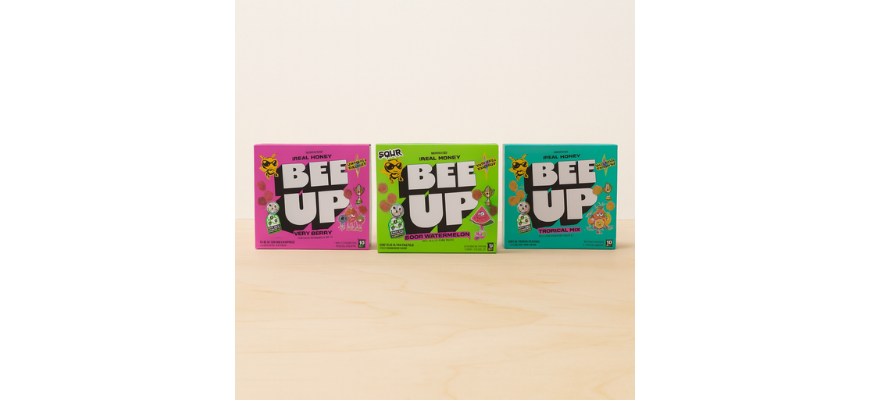
Sir David Beckham launched BEEUP in June 2025—a honey-infused snack brand co-founded with Shaun Neff (SUN BUM, Moon Oral Care). BEEUP stands out for its clean-label ingredients and Beckham’s authentic connection as a hobbyist beekeeper. He turned a personal passion into a snack line for active families.
CEO Mike Keown, with experience at Honey Stinger and Pringles, leads the brand alongside Beckham and Neff. BEEUP launched in Target stores and online at $4.99 per pack, with flavors like Very Berry and Tropical. Backed by Authentic Brands Group, the brand is positioned for expansion through strategic licensing.
BEEUP reflects a deeper licensing model. Beckham isn’t just endorsing—he’s co-owning and shaping the brand. As consumer demand rises for purpose-driven, clean snacks, BEEUP serves as a case study in brand storytelling, IP ownership, and ingredient-based licensing. This article explores the legal structures behind that success.
What is BEEUP, and why is it relevant to licensing law?
BEEUP is a honey-infused fruit snack brand co-founded by Sir David Beckham and entrepreneur Shaun Neff, officially launched in June 2025. More than a celebrity endorsement, BEEUP represents a hands-on venture in which Beckham is a true co-owner, combining his personal passion for beekeeping with consumer packaged goods (CPG) strategy. Available in Target stores nationwide and online, BEEUP’s products are marketed as healthy, kid-friendly snacks featuring real honey, non-GMO ingredients, and natural flavors.
From a legal standpoint, BEEUP exemplifies several advanced licensing structures—covering intellectual property, health claims, ingredient branding, and joint venture governance—that provide actionable lessons for businesses exploring licensing-based growth.
Managing Co-Ownership and Joint Venture Licensing
BEEUP’s joint venture structure offers an instructive model for managing co-ownership between celebrity and CPG entrepreneur:
- Co-Ownership of IP: Beckham likely licenses his name, likeness, and personal story (as a beekeeper and father) to the venture, while Neff contributes CPG know-how and brand development expertise.
- Product and Brand Control: The venture must balance creative and commercial input. JV agreements should define who has final say on packaging, formulations, and advertising.
- Exit Rights & Triggers: The JV must predefine terms for voluntary or forced exits, IP reassignment, buyouts, and dispute resolution. This ensures brand continuity even if one founder exits.
- Future Licensing Delegation: The JV likely includes provisions for sublicensing to distributors, marketers, or product extension partners, along with quality assurance standards.
For business owners launching a brand with a partner—or licensing rights into a venture—define IP ownership, roles, decision rights, and exit strategies from day one.
Ingredient-Centric Licensing
Yes, ingredients can be licensed—not as raw commodities but through proprietary blends, sourcing standards, or branding claims.
BEEUP’s honey-centric strategy includes:
- Health Claims: Statements like “source of vitamins A, C & E” and “honey-powered energy” require compliance with FDA labeling rules. Licensing agreements with manufacturers must include warranties of regulatory compliance and assign responsibilities for substantiation and claim approval.
- Ingredient Branding: Honey is marketed as a natural, healthier sweetener. If BEEUP uses a specific honey blend or infusion technique, intellectual property protections such as trade secrets, NDAs, and limited-use licenses can safeguard these differentiators.
- Quality Control: Licensing deals with suppliers should define measurable quality standards—bee origin, sugar profiles, enzymatic activity, allergen declarations—and provide robust rights to audit, reject, or demand corrective action from vendors.
- Labeling and Allergen Compliance: Ingredient-centric brands must also maintain compliance across all marketing and labeling materials. Regional variations—such as Prop 65 notices in California—require legal review before nationwide or multi-jurisdictional launch.
- Sourcing and Sustainability: If BEEUP makes claims tied to ethical sourcing or bee conservation, these must be backed by verifiable documentation. Licensing agreements can include clauses that require suppliers to meet certifications or sustainability benchmarks.
When building a brand around a key ingredient, legal teams must ensure claims are legally sound, and processes are contractually protected—from formulation IP to supplier compliance and consumer labeling.
What does BEEUP tell us about celebrity licensing in 2025?
BEEUP is part of a new generation of celebrity brands where the celebrity is not just a face, but a founder. Unlike older models where a celebrity licensed their name in exchange for royalties, Beckham is embedded in BEEUP’s mission, voice, and governance.
This trend requires:
- More Complex Licensing Structures: Including moral rights, approval rights, and image usage across platforms.
- Active Participation: Celebrities may demand control over philanthropy, sustainability efforts, and partnerships.
- Brand Authenticity Clauses: Agreements may include provisions for preserving the brand’s authenticity (e.g., requiring use of real honey, supporting bee conservation, or child health).
As celebrities evolve into co-founders, licensing deals must adapt—offering deeper IP protections, governance rights, and brand integrity safeguards.
What legal risks do businesses face when using health claims or functional ingredients?
Brands like BEEUP must navigate:
- FDA Oversight: Nutritional and functional claims are subject to federal and state laws. Mislabeling can lead to warning letters, recalls, or litigation.
- Prop 65 in California: Even naturally derived ingredients may trigger Prop 65 disclosures if trace levels of certain chemicals exist.
- Substantiation: All claims (e.g., “supports energy,” “vitamin-rich”) must be backed by scientific evidence. Licensing contracts should assign responsibility and liability for these claims.
All health-related content should be cleared by legal counsel, and licensing partners should indemnify and warrant compliance.
What Can Businesses Learn from BEEUP’s Success?
Start with a licensing checklist:
- Define IP ownership clearly.
- Structure your venture with co-founder roles, exit rights, and approval processes.
- Protect core ingredients or proprietary blends as trade secrets.
- Align marketing with FDA/FTC standards.
- Include indemnities, warranties, and audit rights in all licensing contracts.
Frequently Asked Questions
1. Can celebrities own IP in joint ventures like BEEUP?
Yes. In modern brand structures, celebrities like Beckham can license or assign their name, likeness, and narrative as IP assets. These rights must be clearly defined and protected in joint venture and licensing agreements.
2. How can functional food claims be legally protected?
Claims like “vitamin-rich” or “supports energy” must be substantiated with credible scientific evidence and comply with FDA and FTC regulations. Licensing partners should warrant compliance and face liability for misstatements.
3. Is it possible to license a natural ingredient like honey?
Yes, through proprietary blends, sourcing processes, or claims associated with the ingredient. Trade secret protections and quality standards can make honey a defensible licensed asset.
4. What clauses should a JV licensing agreement include?
Essential clauses include IP ownership, approval rights, exit mechanisms, buyout triggers, sublicense controls, dispute resolution, and governance structures.
5. How do I ensure brand authenticity in a licensing deal?
Incorporate clauses that define brand values, sustainability commitments, ingredient integrity, and personal involvement thresholds for co-founders. Periodic brand audits and approval processes also help.
Final Thoughts
BEEUP’s launch is more than a product release—it’s a blueprint for how to structure co-founder joint ventures, license ingredients, and embed purpose into a commercial CPG brand. Business owners can learn from its thoughtful structuring: strong IP governance, ingredient integrity, and regulatory readiness are essential for lasting impact.
At Juris Law Group, we help clients craft and enforce smart licensing strategies, from food and beverage to celebrity IP and ingredient compliance. Whether you’re building a brand, entering a joint venture, or exploring ingredient-based marketing claims, our team is here to guide you.
Contact us today to ensure your licensing agreements are as strategic—and scalable—as your vision.
